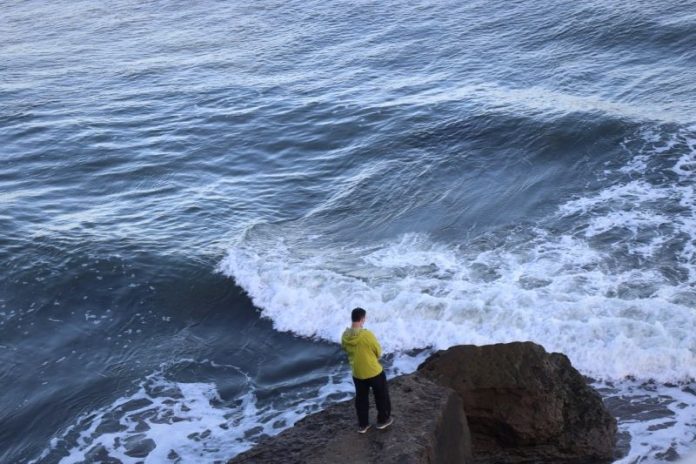The storm was roaring outside the narrow porthole as she watched the waves crash down, down into the ship she had once called home, but was now a prison that could kill them all, could sink in the unrelentless waves.
“—Cordelia!”
Jerking away from the window, Cordelia flinched at the sound of her name yelled from the ugly mouth of one of her father’s brutes—the men he’d hired as mercenaries, guards, in the wake of her mother’s death.
She’d never trusted them, of course; they could be bought for treasure and money, and therefore could betray you when offered more gold to do so.
She’d never trusted them, but the one person she had trusted was her father, and now, as she hid behind a barrel of wine, tucked in the corner of the crowded hold—she’d taken refuge there, waiting for the storm to pass—Cordelia contemplated the logic of trusting anyone because, as usual in her life, trust only led to betrayal, heartbreak, and, in this case, death.
The brute was shouting her name, telling her to come out, that her father had ordered her to go to the deck.
Cordelia knew what happened to girls who went up there in a storm.
They were sacrificed.
It was an old myth, that women on a pirate ship were bad luck, that they attracted misfortune as thick as fog on the horizon of a cloudy day.
She’d thought her father knew better than to believe the stories told by wandering travelers: legends old of death and dainty girls, tales of heroism and dangers faced down by fearless knights.
As a child, her favorite had been the myths of Sirens, the half-woman, half-fish creatures who lured sailors into the murky depths of the ocean, drowning them in the turbulent waters.
As the brute was crashing around the hold, coming precariously near her hiding spot, she shivered in the cold, stagnant air and froze as a long tendril of her tawny brown hair fell over her face, blocking her view of the movement.
Minutes passed, and at last Cordelia assumed the brute had moved on, tried a different room; she couldn’t hear him over the noise of the storm, and by now he must have grown tired of the wait.
It seemed, like all decisions she had made recently, like the correct choice to slowly, carefully, shift away from the barrel.
Oh, so cautiously she moved, squinting in the dim light to navigate her way through the dusty casks of wine, imported from the many countries that benefited from trading with pirates like her father and his crew, like she would grow up to be—unless she was sacrificed for safe passage, only to end up dead at the bottom of the restless sea like so many girls she’d heard of.
Caught up in her thoughts, she didn’t notice the empty bottle of wine, probably drunk by a careless mercenary bored between shifts; her father certainly wouldn’t have let the ship become so cluttered.
She didn’t notice the bottle until the fateful moment that would be her undoing, because carelessly, tragically, unluckily…
She tripped.
When she opened her eyes—she’d struggled so much that the mercenary had knocked her out—she was standing on the deck, surrounded by the assorted guards, brutes, sailors, and mercenaries; all those who weren’t busy keep the boat afloat while the rest of the crew wasted their time murdering a fifteen-winters-old girl.
She was surprised to find her father not among them; she assumed he was too ashamed to show his face while sacrificing his daughter, the coward.
She’d been tied up, both her arms and legs. The rope chafed against her skin, cutting into it, but the knots, although painful, were shoddy; she could probably wriggle out of them if she tried. She didn’t.
There was no hope for escape; all she could do was wait to die and curse each and every sailor who blamed her for the unrelentless nature of the sea.
As she was marched towards the plank—so close, the ever-present smell of salt-water was almost overpowering—Cordelia heard a commotion, coming from the captain’s quarters, and her heart lifted. Only slightly, but perhaps—
It seemed fate was giving her one last blessing before her ultimate demise: her father was struggling through the crowd, screaming her name.
He did not get very far, because despite being a strong man, there were too many of the brutes, and they held him back, wild-eyed with sorrow as he yelled at them, “Stop!”
He should have known it would do no good.
The men holding her forced her forward, each step getting closer to the merciless waters below, until at last they stepped back, holding the tip of a sharpened sword against her back, and she was staring down at the sea: dark and turbulent beneath the flimsy wooden beam she had to step off.
She couldn’t survive the fall; of that, she was certain.
She wondered who would miss her when she was gone.
Her father, for at least a few weeks, but he would move on, just as he had after her mother’s death.
She’d never quite had time for friends, not close ones.
Always stuck in a book or on a voyage with her father, always moving from place to place, never growing attached for long before she had to leave again.
With a bitter laugh, Cordelia stepped off the edge: now she wouldn’t have to worry about such things, at the very least.
————————————————————
As she fell, Cordelia once again remembered the stories she’d heard of Sirens and wondered how they came to be, if they belonged to the sea as much as she did, if they could feel the seawater in their blood, singing as they did.
As she fell, Cordelia wondered what would happen to her—would her body eventually decompose on the ocean floor? Perhaps eaten by a fish; that seemed a fitting end.
She did not have to wonder upon either of these things for long, because as she plunged into the waves with a sharp curse, the murky waters seemed to glow with… people?
But that could not be, for people did not have the tails of fish, did not have gills nor eyes that glowed a strange orange, seeming to pierce her very soul, their sharpness overtaken only by their teeth, honed to a wicked edge.
Her shock faded; the sound of music filled her ears. It was sweet and drew her in. And as she recalled the myths she’d always loved in childhood, Cordelia realized that the singers were not, in fact, human.
They were Sirens.
Because Sirens were born out of maidens betrayed by Captain and Crew alike; they were women who had been taken from life as they knew it, girls like her.
But they became a gift from the Sea herself, forever bound to the ocean, and forever bound by revenge.
Perhaps the sailors were right, Cordelia mused. Maybe they were correct in a way that was almost hilariously ironic, for the very girls they blamed for their misfortune as they threw them off their ships were the girls who would end up causing their deaths.
Sirens could wield the power of the Sea, and that meant harnessing the waves to wreck the ships of the pirates who had doomed themselves, in the end.
Join the conversation!





